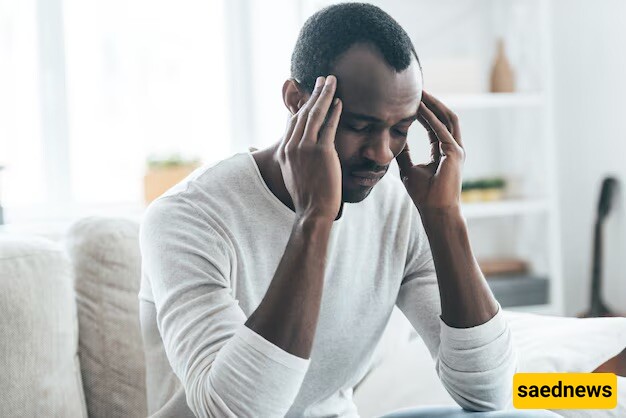Male menstruation refers to changes in male hormone levels over time. Although men do not menstruate like women, they experience monthly hormonal changes that can affect their health and behavior.

Saed News: Male menstruation refers to changes in male hormone levels over time. Although men do not menstruate like women, they experience monthly hormonal changes that can affect their health and behavior.
According to the family magazine service of Saed News, male menstruation refers to changes in male hormone levels over time. Although men do not menstruate like women, they experience monthly hormonal changes that can affect their health and behavior.
These changes primarily relate to fluctuations in testosterone, estrogen, and other sex-related hormones. The male menstrual cycle can include changes in energy levels, mood, sexual function, and even social and psychological behaviors. Understanding this phenomenon can help better manage men's physical and emotional health.
What is the Male Menstrual Cycle?
The male menstrual cycle refers to changes in hormone levels in men's bodies over specific periods. These changes can involve fluctuations in testosterone and other hormones. The concept of the male menstrual cycle relates to the natural and regular hormonal fluctuations in men's bodies that can affect daily life and physical performance.
Symptoms of Male Menstruation
IMS (Irritable Male Syndrome) symptoms typically occur in the week leading up to male menstruation. The exact cause of IMS is not fully understood but is believed to be related to the same hormonal changes women experience during their menstrual cycle. Unlike women who have visible physical symptoms like cramping or bleeding, male menstruation is more subtle and harder to detect.
Male menstruation or irritable male syndrome is a real phenomenon caused by hormonal changes. Understanding these changes can help men cope with IMS-related symptoms. While men may not experience menstrual cycles, they can still have hormonal fluctuations leading to physical and emotional changes. These changes are often referred to as "male menstruation."
Symptoms of male menstruation include mood swings, irritability, fatigue, and changes in appetite. Physically, men may experience bloating, headaches, acne breakouts, and muscle aches. Some men may also experience reduced libido or sexual function during this time.
Differences Between Female and Male Menstruation
The primary differences between female and male menstruation lie in the hormonal changes and physical symptoms experienced by each gender.
Hormones: In women, menstruation involves changes in estrogen and progesterone levels during a monthly cycle. These hormonal changes lead to changes in the uterine lining, bleeding, and behavioral and emotional shifts. In men, testosterone levels may fluctuate over time, but there is no cyclical pattern similar to women's menstruation.
Physical Symptoms: Women experience symptoms like abdominal pain, breast tenderness, mood swings, and skin and hair changes. In contrast, men's hormonal changes can lead to mood swings, energy shifts, sexual performance changes, and muscle growth without a regular cyclical pattern.
Duration of Male Menstruation
The concept of male menstruation does not imply a cyclical period similar to female menstruation. Men do not have monthly hormonal cycles like women. Testosterone, an essential male hormone, may fluctuate over time but does so gradually and irregularly, not in a defined monthly cycle.
Therefore, male menstruation refers to gradual and irregular hormonal changes in testosterone and other sex-related hormones over time, influenced by various life and environmental factors.
Ways to Relieve Male Menstruation
Maintaining a healthy diet, regular exercise, and sufficient sleep can help alleviate physical symptoms like fatigue, headaches, or muscle cramps. Men can also try relaxation techniques like meditation or yoga and seek anxiety treatment to reduce stress levels. Support from loved ones can be crucial for men experiencing emotional symptoms like mood swings or anxiety.
Talking to trusted friends or family about their experiences may provide comfort. It's essential to note that experiencing symptoms similar to a menstrual cycle may indicate underlying health issues, and consulting a doctor is always recommended. Men's health should not be overlooked due to the lack of a menstrual cycle.
The term "male menstruation" is not accurate, as men do not have monthly hormonal cycles like women. Instead, men's hormonal changes occur irregularly and gradually, influenced by various factors, without a defined cyclical pattern.


